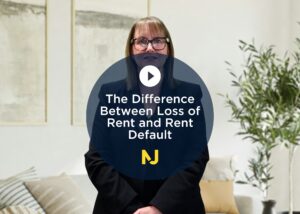Taking out insurance is a lot like buying a lottery ticket, with both decisions steeped in possibilities and ‘what-ifs’.
However, when it comes to investment properties, landlord insurance is a wise choice.
Landlord insurance is designed to cover the cost of replacement or repair if your residential rental property is damaged as a result of certain events.
This type of insurance generally covers the building and permanent fixtures – such as flooring, blinds, light fittings and appliances – from accidental or malicious damage as well as rental loss.
Investors can insure just the building or the contents or both depending on the insurer’s policy.
It covers some risks faced by all property owners, such as fire, storm and impact damage, as well as events related to a tenants’ lease, including theft, vandalism, tenant default and legal expenses required to evict a tenant.
More than 2.2 million Australians own an investment property, however just over half of all self-managing landlords have insurance for their rental home, according to investment property buyer agent Adviseable.
Without landlord insurance, property owners risk taking on the financial burden if the property is damaged or uninhabitable, as well as costs stemming from broken leases or legal proceedings.
While you may have wonderful renters, accidents do happen and events outside of their or your control could occur at any time, such as a water leak from a dishwasher ruining kitchen floorboards or a visitor injuring themselves on your stairs.
Premiums for landlord insurance are tax-deductible in Australia – making tax time a little more pleasant – and being covered gives some peace of mind should things go pear-shaped at your property.
The Victorian government’s new rental laws also drive home the value of insurance as they give tenants greater flexibility and the right to make modifications and bring in pets. These changes heighten the risk of damage to your property.
Whether you’re a new investor or a long-term landlord, it is crucial you take the time to consider the type and level of cover you want for your investment property.
Take the time to sift through the array of insurance policies on the market, read the Product Disclosure Statement and ensure you have the right amount of cover to avoid ever being left out of pocket.
Landlord insurance could well be the difference between a winning investment and financial ruin.
Contact Noel Jones for more information and guidance along your property journey.
Disclaimer: While due care is taken, the contents of this article, including any information and advice contained in it, has been prepared without taking into account your property investment objectives, financial situation or needs. Please consider the appropriateness of the information, taking these matters into account, before you act on any information or advice.






